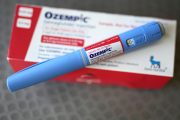If you’re a regular reader of The New American, you are well aware by now that ObamaCare is very bad for humans. But did you know it’s also bad for their furry friends?
As with human healthcare, the Patient Protection and Affordable Care Act — contrary to its moniker — makes veterinary care less affordable. In fact, one provision of the law is responsible for rising costs in both human and animal healthcare: the new medical device tax.
In order to pay for the law’s massive new spending, since the first of the year the federal government has imposed a 2.3-percent excise tax on certain medical devices. “Medical devices used only on animals are exempt,” reports Miami TV station WFOR. “However, items including IV pumps, sterile scalpels and anesthesia equipment, which are medical devices that have a dual use, meaning they can be used on people and animals, will be taxed.”
Medical device manufacturers, naturally, are not inclined to eat those taxes — especially since the taxes will be levied whether or not they turn a profit, potentially causing them to owe the government more than they earn. A recent industry survey by the consulting firm Emergo Group found that almost 33 percent of device makers expect the tax to have a “very negative impact” on their bottom lines; 52.5 percent of them — and 58 percent of those based in North America — plan to pass the increased costs along to their customers. (Another 16.6 percent said they plan to cut staff to mitigate the cost; at least one device maker, Kalamazoo, Michigan-based Stryker Corporation, has already begun slashing its workforce in anticipation of the tax.)
Of course, if the cost to the vet goes up, so does the cost to the patient — or, rather, the patient’s owner. One vet, says WFOR, actually posted this notice on Facebook: “Because medical equipment and supplies will be going up in cost, that extra expense will have to be passed on to the customers.”
“I’m extremely concerned how this is going to be a hidden tax to our consumers that is going to be passed on,” veterinarian Dr. Mike Hatcher told the station. Higher costs could force pet owners to put off obtaining care for their pets and vets to delay purchasing new equipment, which he said “can terribly affect our clients’ ability to have quality care.”
The American Veterinary Medical Association (AVMA), which represents 82,000 vets, says it doesn’t yet know how much the new tax will cost them.
“Congress never intended for this tax to impact veterinary medicine and unfortunately it has, and I think that’s very unfortunate that veterinary medicine now is subsidizing human healthcare,” Dr. Mark Lutschaunig, director of the AVMA’s governmental relations division, told WFOR.
According to the station, “Congressional sources who worked on the Affordable Care Act said lawmakers tried to exclude vets from being affected by the dual use medical devices tax, but it was too complicated.” Apparently the simple solution — doing away with the tax — never occurred to them; but then they would probably just have created or hiked a different tax in its place.
Vets and pet owners aren’t the only ones concerned about the tax’s effect on the price of animal healthcare. Carol Smock, founder of the Brown Dog Foundation, a charitable organization that helps struggling pet owners pay for veterinary care, is afraid her foundation “is going to be overwhelmed with requests,” reports WFOR.
“The impact this price increase is going to have on any of those families I think will be pretty devastating,” she said.
Animal shelters can’t be happy about this turn of events, either. They are likely to get hit with a double whammy: more animals given up because their owners can’t afford them plus higher costs to take care of all those extra critters.
How many pet owners voted for Barack Obama, thinking they were going to get free healthcare? Well, there’s no such thing as a free lunch or free healthcare — something they will discover the next time they take Rover in for a checkup. Unfortunately, those who didn’t vote for Obama are going to get victimized at the vet’s just the same.




